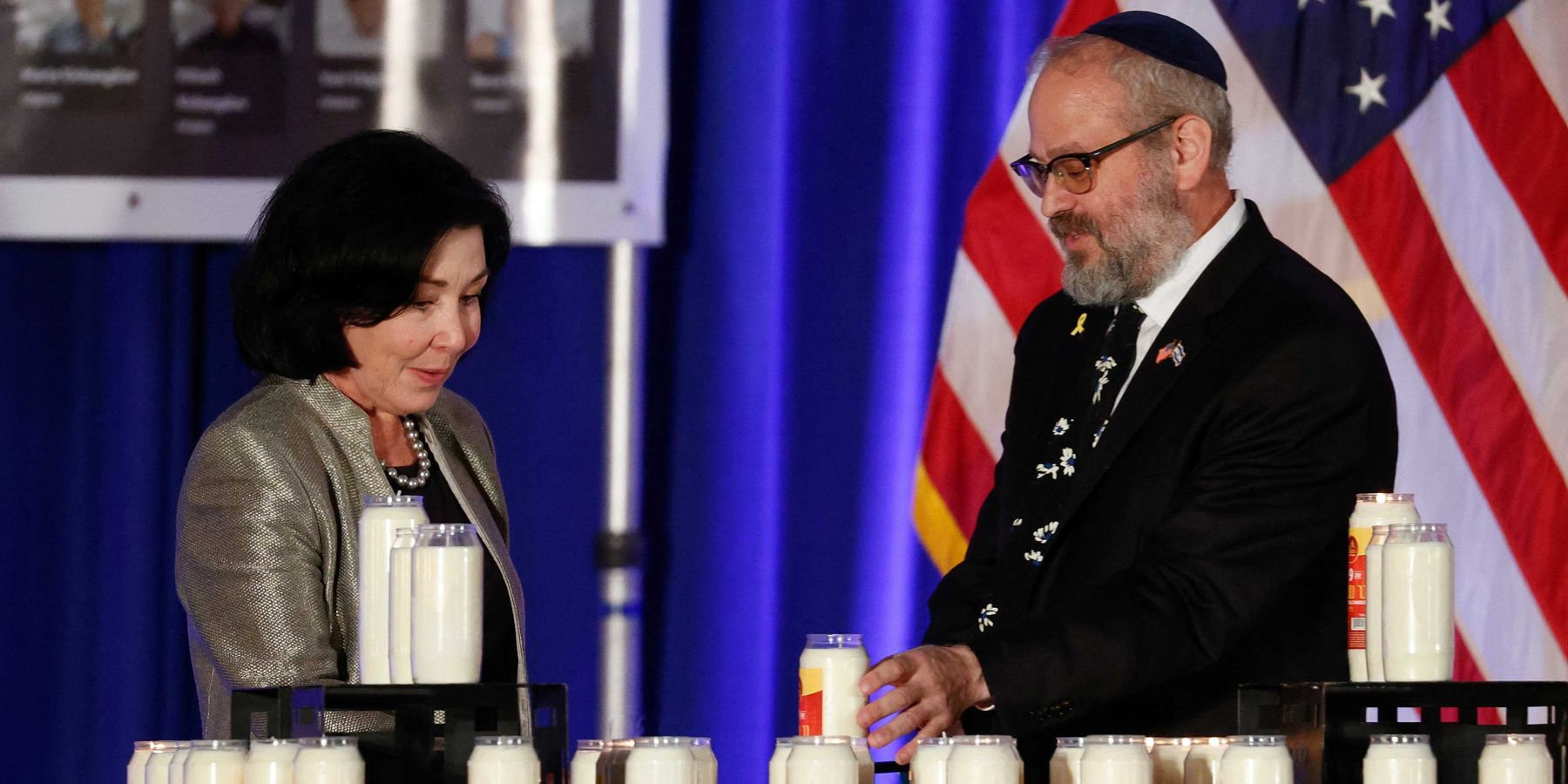TikTok’s impending sale to a group of U.S. investors led by Oracle was supposed to alleviate concerns about foreign influence over the popular social media platform. But a series of statements in Israeli media outlets by company executives including Executive Vice Board Chair and former CEO Safra Catz, reveal the company's commitment to Israel is “unequivocal" and is not shy about squelching criticism of Israel internally.
These statements raise questions about how Oracle might exercise its impending ownership role at TikTok, a platform popular with young adults who are often critical of U.S. support for Israel’s war in Gaza and Israel’s killing of Palestinian civilians, which a U.N. commission recently characterized as a “genocide.”
In 2021, Catz visited Israel as her first trip outside the U.S. after the COVID-19 pandemic. Calcalist, an Israeli publication, reported on remarks by the Oracle CEO:
When asked about the protests against Israel organized by employees at Google and Apple, Catz said that "when you connect with Oracle you understand that we are committed to the U.S. and Israel. We are not flexible regarding our mission, and our commitment to Israel is second to none. This is a free world and I love my employees, and if they don't agree with our mission to support the State of Israel then maybe we aren't the right company for them. Larry (Ellison, co-founder of Oracle) and I are publicly committed to Israel and devote personal time to the country and no one should be surprised by that."
In a 2024 interview with Calcalist, Catz emphasized that one of her first actions after the October 7th 2023 Hamas attack was to send the message to Oracle’s clients around the world - including, presumably, in many countries where Oracle holds government contracts - that the technology company prioritizes Israel. She said:
"So what we did was first sort of hug our employees, hug my Oracle employees by doing everything we could think of and put on our website ‘We stand with Israel’, not only on our Israeli website or even on our American website, but on our websites around the world in the local language. And as you know, we operate in a lot of countries. And it was very important for us to make sure we made a powerful message about how important Israel is and what the difference is between good and evil.”
Head of Oracle Israel Eran Feigenbaum reinforced the messages delivered by Catz in a 2023 interview with the Israeli publication Ynet. Feigenbaum said:
"I couldn't fathom a global company offering more support to Israel than Oracle. It's an incredible opportunity to lead the Israeli branch with the backing of a global powerhouse. Oracle's leadership, including the fact that Larry himself has an Israeli origin, has consistently demonstrated unequivocal support for Israel. So much so, that employees not aligning with support for Israel may find Oracle isn't the right fit."
The message from higher ups at Oracle that anything less than total prioritization of Israeli interests is unwelcome behavior appears to be reinforced through the company’s human resources department. An anonymous Substack, Oracle For Palestine, written by a group of Oracle employees, claims that that “our leadership’s unquestioning public support for Israel” has led to a failure of the company to address the one-sided political positions taken by top management and the discrimination faced by employees who don’t share the political views of management.
“In response to legitimate concerns, many of us have been referred to internal mental health resources rather than having those concerns addressed appropriately,” said the group in a post last year.
Catz’s comments as well as the anecdote about Oracle staff being referred to mental health resources were all celebrated in a Times of Israel blog post by Oracle employee Ivan Bassov.
“Oracle has been refreshingly clear and consistent under the leadership of our CEO, Safra Catz,” wrote Bassov. “She has repeatedly articulated both her personal commitment and Oracle’s commitment to Israel.”
Bassov appeared to corroborate the anonymous Substack’s claims and endorsed Oracle’s treatment of his “anti-Israel” colleagues, writing, “Well, if sending these ‘activists’ to therapy instead of resetting the company’s moral compass counts as ‘repression,’ then maybe the company’s judgment was sounder than they think.”
Earlier this week, Responsible Statecraft reported on a leaked email from the hacked email account of former Israeli Prime Minister Ehud Barak. “We have all been horrified by the growth of the BDS movement in college campuses and have concluded that we have to fight this battle before the kids even get to college,” said an email appearing to originate from Catz to Barak in 2015. “We believe that we have to embed the love and respect for Israel in the American culture.”
Sources familiar with the matter “could not confirm the authenticity of the email” and Oracle declined to comment about Catz’s statements. However, review of Catz’s public statements, as well as those from another executive at Oracle, reveal similar biases in favor of Israel and even clearer expressions of Oracle’s prioritization of Israel over any other countries or corporate interests.The track record of Oracle executives demanding commitment to Israel from staff around the world raises a number of questions:
How does Oracle address situations in which U.S. interests, or the interests of any other country in which the company operates, are in conflict with Israel's interests?
Will these statements of unequivocal support for Israel translate into restrictions on speech critical of Israel on TikTok under Oracle’s ownership?
An Oracle spokesperson did not respond to these questions.
















